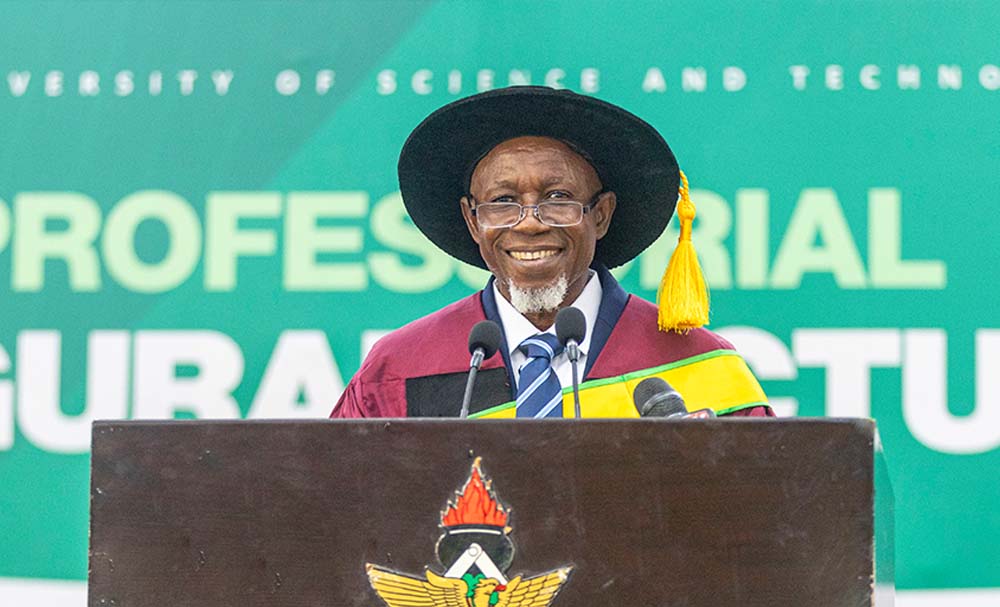An economist at the Kwame Nkrumah University of Science and Technology (KNUST), Kumasi Prof. Mohammed Hadrat Yusif, has called for sweeping reforms to Ghana’s monetary policy framework, including granting operational independence to the Bank of Ghana (BoG).
According to him, such reforms are essential to restoring macroeconomic stability and supporting long-term national development.
Delivering his Professorial Inaugural Lecture, Prof. Yusif examined Ghana’s monetary policy history and its persistent structural weaknesses.
The lecture, titled “Monetary Policy in Ghana: Revisiting the Tobin’s Model,” traced the economic divergence between Ghana and peer countries like South Korea and Malaysia, nations that were at similar levels of development at independence but have since outpaced Ghana in growth and stability.
“Ghana’s monetary policy has failed. Inflation is high, debt levels are unsustainable, and the infrastructure needed for sustainable development remains inadequate,” he stated.
Prof. Yusif observed that although the BoG was established in 1957 to stabilise prices, manage exchange rates, and control money supply, Ghana continues to face significant economic challenges.
He cited a sharp rise in public debt as evidence of policy failure. Domestic debt as a percentage of GDP, he noted, rose from 35% in 2016 to 90% in 2024, while external debt increased from 20% to 50% in the same period.
In 2024, Ghana’s inflation stood at 22.5%, compared to rates below 2.5% in countries like South Korea, Malaysia, and Singapore.
Prof. Yusif partly blamed the situation on what he described as the Ministry of Finance’s dominance over the central bank, which he argued undermines the BoG’s independence.
“The Bank of Ghana should be allowed to operate free from political interference. Monetary policy must be compatible with the broader macroeconomic goals of the country,” he said.
Among his proposals were a shift from inflation targeting to nominal GDP targeting, a review of the Fiscal Responsibility Act (2018) and the Bank of Ghana Act (2002), and greater investment in research and development.
He also called for deeper collaboration between the BoG and academic institutions such as KNUST to support evidence-based policy making.
Prof. Yusif underscored the importance of public-private partnerships for infrastructure development, responsible gold and cocoa production, and stronger support for small and medium enterprises (SMEs), especially in the context of the Africa Continental Free Trade Area (AfCFTA).
DISCLAIMER: The Views, Comments, Opinions, Contributions and Statements made by Readers and Contributors on this platform do not necessarily represent the views or policy of Multimedia Group Limited.
DISCLAIMER: The Views, Comments, Opinions, Contributions and Statements made by Readers and Contributors on this platform do not necessarily represent the views or policy of Multimedia Group Limited.


